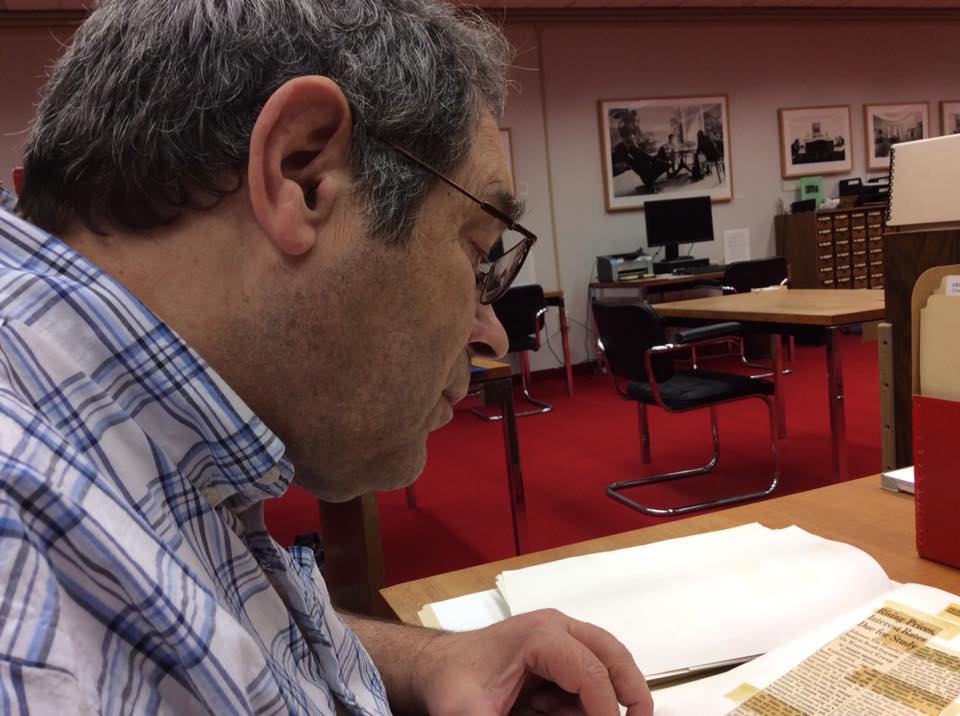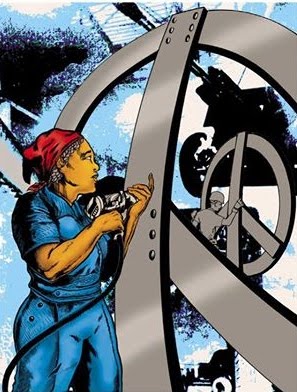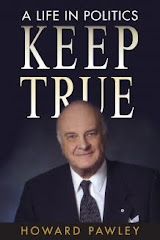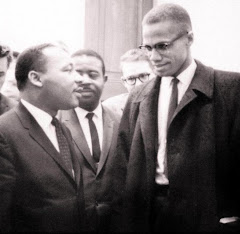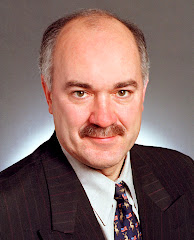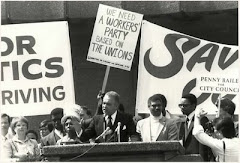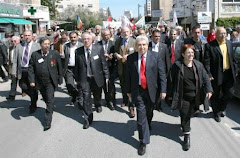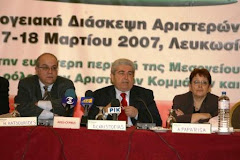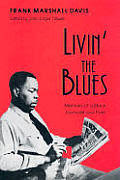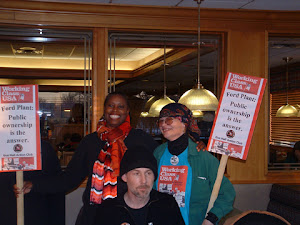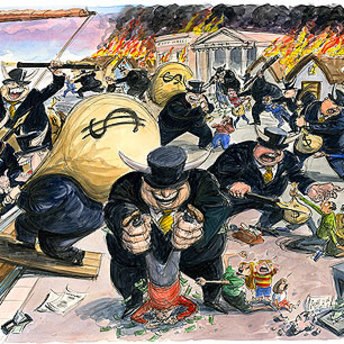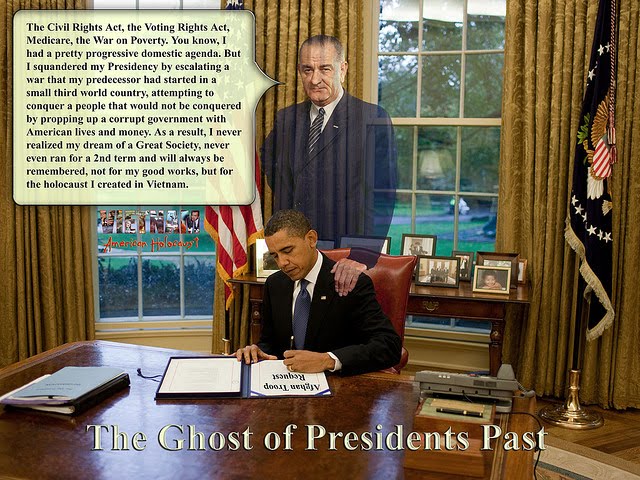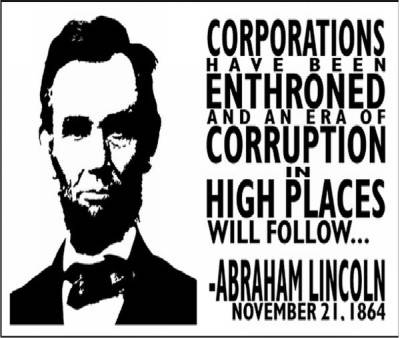These are among the findings of a national survey by the Pew Research Center for the People & the Press that tests reactions to words and phrases frequently used in current political discourse. Overall, 29% say they have a positive reaction to the word “socialism,” while 59% react negatively. The public’s impressions of “capitalism,” though far more positive, are somewhat mixed. Slightly more than half (52%) react positively to the word “capitalism,” compared with 37% who say they have a negative reaction.
 A large majority of Republicans (77%) react negatively to “socialism,” while 62% have a positive reaction to “capitalism.” Democrats’ impressions are more divided: In fact, about as many Democrats react positively to “socialism” (44%) as to “capitalism” (47%).
A large majority of Republicans (77%) react negatively to “socialism,” while 62% have a positive reaction to “capitalism.” Democrats’ impressions are more divided: In fact, about as many Democrats react positively to “socialism” (44%) as to “capitalism” (47%).Reaction to “capitalism” is lukewarm among many demographic groups. Fewer than half of young people, women, people with lower incomes and those with less education react positively to “capitalism.”
The survey, conducted April 21-26 among 1,546 adults, measured reactions to nine political words and phrases. The most positive reactions are to “family values” (89% positive) and “civil rights” (87%). About three-quarters see “states’ rights” (77%) and “civil liberties” (76%) positively, while 68% have a positive reaction to the word “progressive.”
Reactions to the word “libertarian” are evenly divided – 38% positive, 37% negative. On balance, Republicans view “libertarian” negatively, Democrats are divided, while independents have a positive impression of the term. “Militia” elicits the most negative reaction of the nine terms tested: Just 21% have a positive reaction compared with 65% who have a negative response.
Partisan Divide over “Socialism”
 The most striking partisan differences come in reactions to the word “socialism.” Just 15% of Republicans react positively to “socialism” while 77% react negatively. By more than two-to-one (64% to 26%), independents also have a negative impression of “socialism.” However, Democrats are evenly divided – 44% have a positive reaction to “socialism” while 43% react negatively.
The most striking partisan differences come in reactions to the word “socialism.” Just 15% of Republicans react positively to “socialism” while 77% react negatively. By more than two-to-one (64% to 26%), independents also have a negative impression of “socialism.” However, Democrats are evenly divided – 44% have a positive reaction to “socialism” while 43% react negatively.“Capitalism” elicits a less partisan reaction. About six-in-ten Republicans (62%) react positively to “capitalism,” compared with 29% who have a negative reaction. About half of independents (52%) have a positive impression while 39% react negatively. Among Democrats, 47% react positively to “capitalism” while nearly as many (43%) react negatively.
There is a substantial partisan divide in views of the word “progressive.” However, majorities of Democrats (81%), independents (64%) and Republicans (56%) have a positive reaction to “progressive.”
More than four-in-ten independents (44%) react positively to the word “libertarian,” while 32% have a negative reaction. Democrats are nearly evenly divided (39% positive, 37% negative). However, Republicans on balance have a negative impression of this term (44% negative, 31% positive).
Majorities of Democrats (70%), independents (66%) and Republicans (59%) react negatively to the word “militia.” Nearly twice as many Republicans (27%) as Democrats (15%) have a positive view of this term.
Young People Lukewarm Toward “Capitalism”
Young people are more positive about “socialism” – and more negative about “capitalism” – than are older Americans. Among those younger than 30, identical percentages react positively to “socialism” and “capitalism” (43% each), while about half react negatively to each. Among older age groups, majorities view “socialism” negatively and “capitalism” positively.
“capitalism” (43% each), while about half react negatively to each. Among older age groups, majorities view “socialism” negatively and “capitalism” positively.People 65 and older have a particularly negative reaction to “socialism” – 73% have a negative impression of the term compared with just 14% who are positive. But those 65 and older are no more likely than those ages 30 to 64 to have a positive reaction to “capitalism” (56% vs. 55%).
More than twice as many blacks as whites react positively to “socialism” (53% vs. 24%). Yet there are no racial differences in views of “capitalism” – 50% of African Americans and 53% of whites have a positive reaction.
Those with a high school education or less are evenly divided over “capitalism” (44% positive vs. 42% negative). Among those with some college experience, 49% react positively to “capitalism” as do 68% of college graduates. Those with a high school education or less are more likely to express a positive view of “socialism” than do those with more education.
People with family incomes of $75,000 or more are the only income group in which a clear majority (66%) reacts positively to the word “capitalism.” Views of “socialism” also are much more negative among those in this income category (71% negative) – and those with incomes of $30,000 to $75,000 (64% negative) – than those with incomes of less than $30,000 (46% negative).
Conservative Republicans stand out for their overwhelmingly negative reactions to “socialism” (84% negative) and highly positive reactions to “capitalism” (67% positive). No more than about half in other political groups, including moderate and liberal Republicans (51%), have a positive impression of “capitalism.”
Perhaps surprisingly, opinions about the terms “socialism” and “capitalism” are not correlated with each other. Most of those who have a positive reaction to “socialism” also have a positive reaction to “capitalism”; in fact, views of “capitalism” are about the same among those who react positively to “socialism” as they are among those who react negatively (52% and 56%, respectively, view “capitalism” positively). Conversely, views of “socialism” are just as negative among those who have a positive reaction to “capitalism” (64% negative) as those who react negatively (61% negative).
There are some differences in the relationship between these terms by demographic groups, although the association is not particularly strong among any group. For instance, among college graduates, 71% of those with a positive reaction to “capitalism” have a negative reaction to “socialism.” By contrast, among college graduates who have a negative view of “capitalism” a smaller proportion have a negative view of “socialism” (51%).
Gender Differences in Views of “Militia”
While the word “militia” is viewed negatively, there are gender and partisan differences in reactions to this term. Overall, twice as many men (28%) as women (14%) say they have a positive reaction to the word “militia.” In addition, more Republicans (27%) than independents (20%) or Democrats (15%) have positive impressions.Republican men have a more positive impression of “militia” (36% positive) than do Democratic men (19%). Moreover, GOP men have a more positive reaction than do Republican women (18% positive).
There also is a sizeable gender gap in independents’ reactions to “militia.” Among independents, 28% of men have a positive reaction to “militia,” compared with just 10% of women. The gender differences are more modest among Democrats (19% positive among men vs. 12% among women).
"Socialism" Not So Negative, "Capitalism" Not So Positive
About the Survey
The combined landline and cell phone sample are weighted using an iterative technique that matches gender, age, education, race/ethnicity, region, and population density to parameters from the March 2009 Census Bureau's Current Population Survey. The sample is also weighted to match current patterns of telephone status and relative usage of landline and cell phones (for those with both), based on extrapolations from the 2009 National Health Interview Survey. The weighting procedure also accounts for the fact that respondents with both landline and cell phones have a greater probability of being included in the combined sample and adjusts for household size within the landline sample. Sampling errors and statistical tests of significance take into account the effect of weighting.
The following table shows the error attributable to sampling that would be expected at the 95% level of confidence for different groups in the survey:

ABOUT THE CENTER
The Pew Research Center for the People & the Press is an independent opinion research group that studies attitudes toward the press, politics and public policy issues. We are sponsored by The Pew Charitable Trusts and are one of seven projects that make up the Pew Research Center, a nonpartisan "fact tank" that provides information on the issues, attitudes and trends shaping America and the world.The Center's purpose is to serve as a forum for ideas on the media and public policy through public opinion research. In this role it serves as an important information resource for political leaders, journalists, scholars, and public interest organizations. All of our current survey results are made available free of charge.
All of the Center’s research and reports are collaborative products based on the input and analysis of the entire Center staff consisting of:
Andrew Kohut, Director
Scott Keeter, Director of Survey Research
Carroll Doherty and Michael Dimock, Associate Directors
Michael Remez, Senior Writer
Robert Suls, Shawn Neidorf, Leah Christian, Jocelyn Kiley and Alec Tyson, Research Associates
Jacob Poushter, Research Assistant

